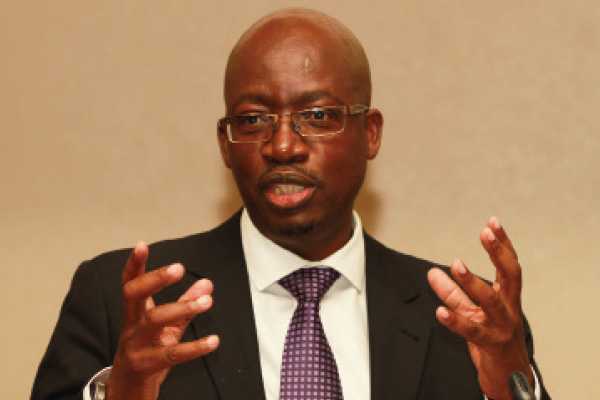Key Dingake’s recognition as world class scholar and jurist grows
The appointment of Justice Oagile Key Dingake as an adjunct professor of Law, by a leading Australian University James Cook- soon after a similar conferment by the University of Cape Town, is confirmation of his intellectual depth. Dingake’s appointment was made on the 18th, December 2018. It makes him an Adjunct Professor of Law in the College of Business, Law and Governance.
Dingake is one of the most celebrated judges the country has ever produced. Some people believe that he is the greatest judge Botswana has ever produced, whose services are now sought in many jurisdictions. He is currently a Judge of the Supreme and National Courts of Papua New Guinea in the Pacific, North of Australia. He is also a Judge of the Residual Special Court of Sierra Leone (RSCSL) appointed by the Secretary General of the United Nations in 2013.Dingake is armed with a PhD in Law from the University of Cape Town; an LLM from the University of London and an LLB from the University of Botswana. He has a number of post graduates certificates in international development studies and political economy of development from the University of Oslo and London School of Economics.
He has been recognised as an exceptional and distinguished scholar by a number of Universities around the globe, including the University of Pretoria, Cape Town and James Cook University in Australia. The latter recently, in December, 2018, appointed him Adjunct Professor of Law. This is the second Professorship in Law that has been conferred on him by an international university after the conferment by the University of Cape Town. Confirming the appointment to Botswana Guardian, Dingake said it is expected that his engagement with the University will include sharing his extensive knowledge of the law with the University community; engaging with students and staff in legal research in areas of his expertise.
“It is also expected that in my role as Adjunct Professor, I will consult with the University and faculty executive on engagement with South East Asia and with African states. “I am obviously elated by the increased recognition, on a global stage, of my scholarship and jurisprudential output as a judge nationally and internationally,” Dingake said. In the last 15 years Dingake served in the Botswana judiciary and left an unprecedented mark in the development of the law in the country. His colleagues in the legal fraternity cite cases in Diau, Maphanyane, Mmusi, BOPEU, Bah and Mathambo as pure classics.
They say, intellectually, for a long time he and Justice Kirby ruled supreme. They say the two only differed in terms of philosophical outlook. Dingake was regarded by many as progressive and Kirby as conservative. Those who worked closely with him say the last decade in Botswana judiciary could easily be characterised as the age of Judicial Case Management (JCM) and Justice Dingake. He is recognised by his peers in Africa and globally as a judicial leader. He is the Chairperson of the Rules Amendment Committee of the RSCSL; former Chairperson of the Law Reporting Committee in Botswana; Chairperson of the African Centre for Justice Innovation (ACJI); President of the Africa Judges Forum on HIV/TB, Human Rights and the Law and Chairperson of the African Think Tank on HIV, Health and Social Justice.
In 2016 Judge Dingake ran and was shortlisted as a candidate of the UN Special Rapporteur of the Independence of Judges and Lawyers.Professor Werbner of Keele University in the United Kingdom, in his book: ‘The Making of An African Working Class- Politics, Law and Cultural Protest’, discusses and contrasts the judgments of Dingake J and those of Kirby JA in labour law and concludes that some of Justice Dingake ‘s judgements exudes amazing intellectual depth and brilliance. He actually goes so far as to say one of his judgements must be made “an annexure to the Botswana Constitution.” Dingake is an author of two important books - Collective Labour Law in Botswana and Individual Labour Law in Botswana.





